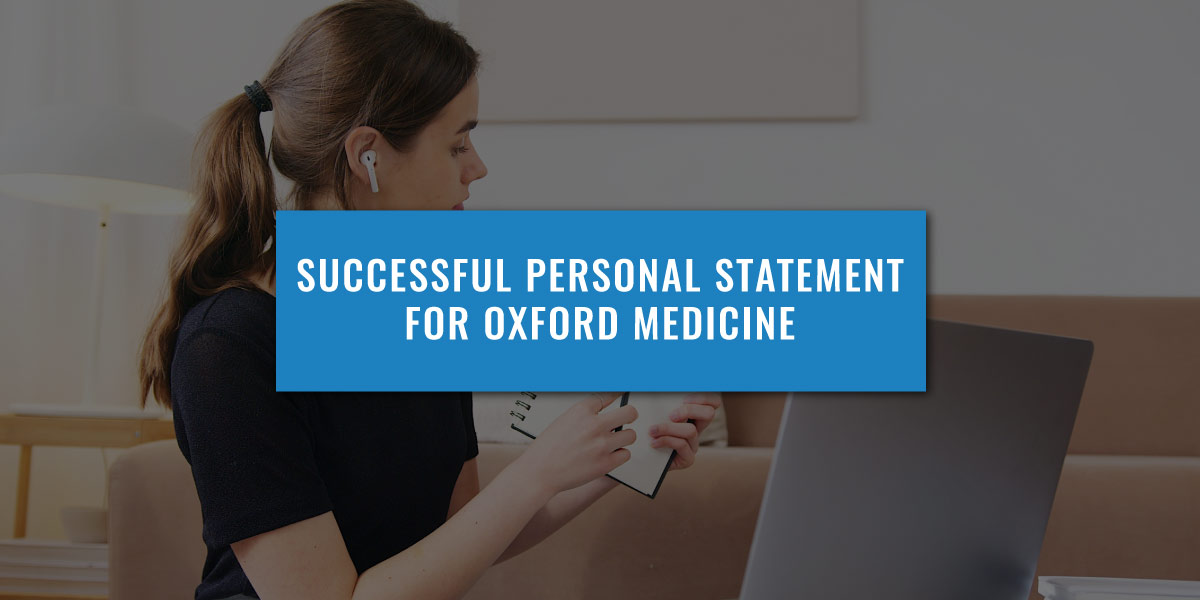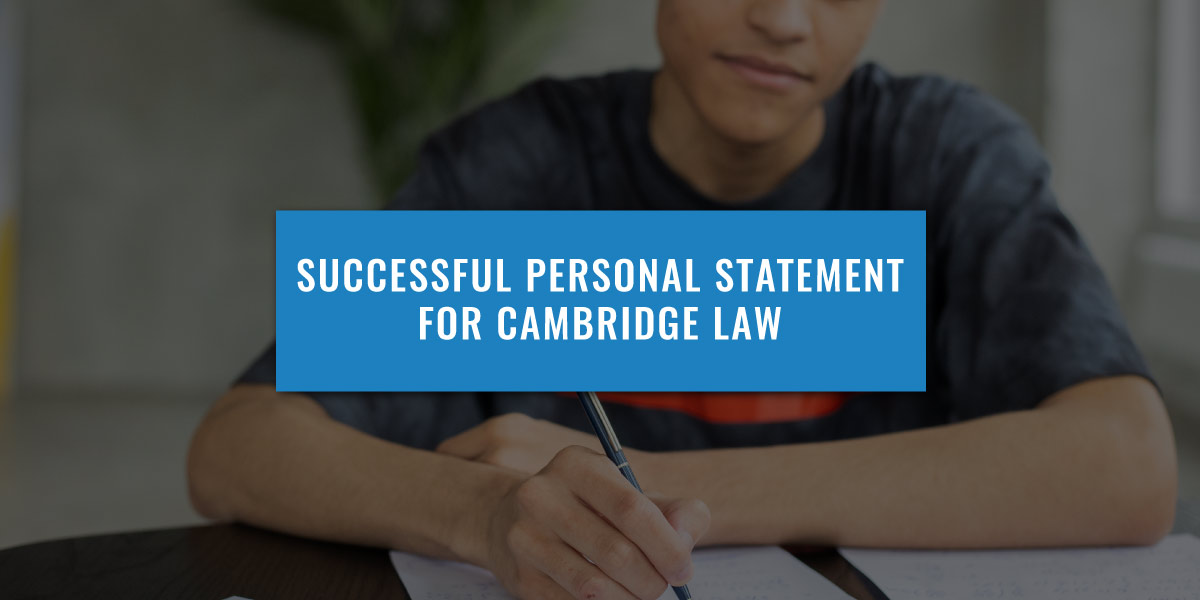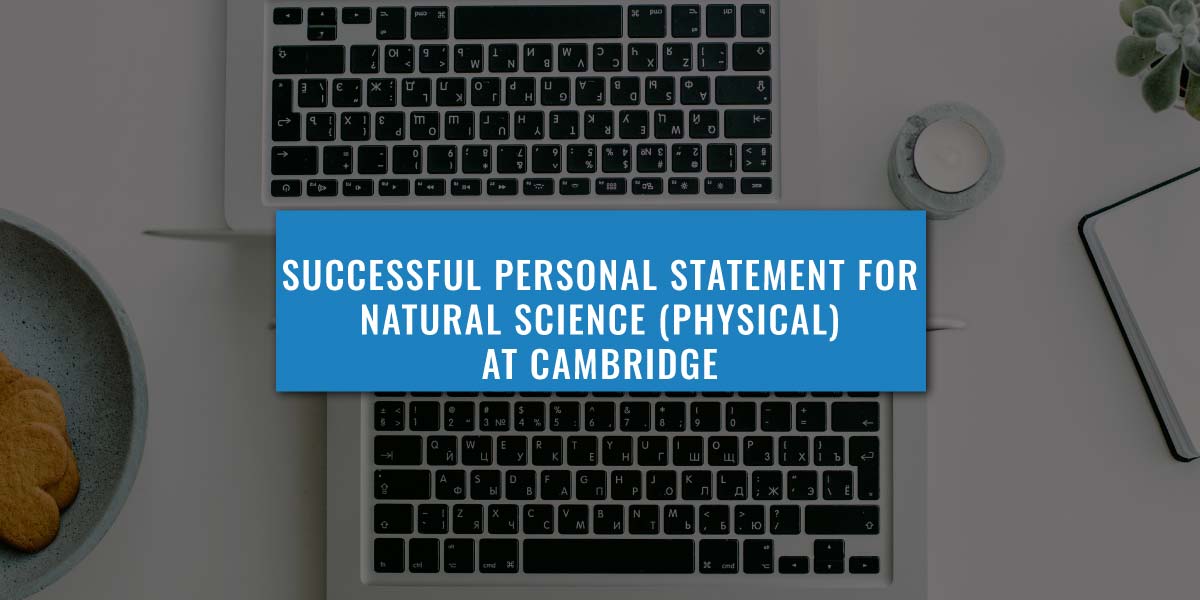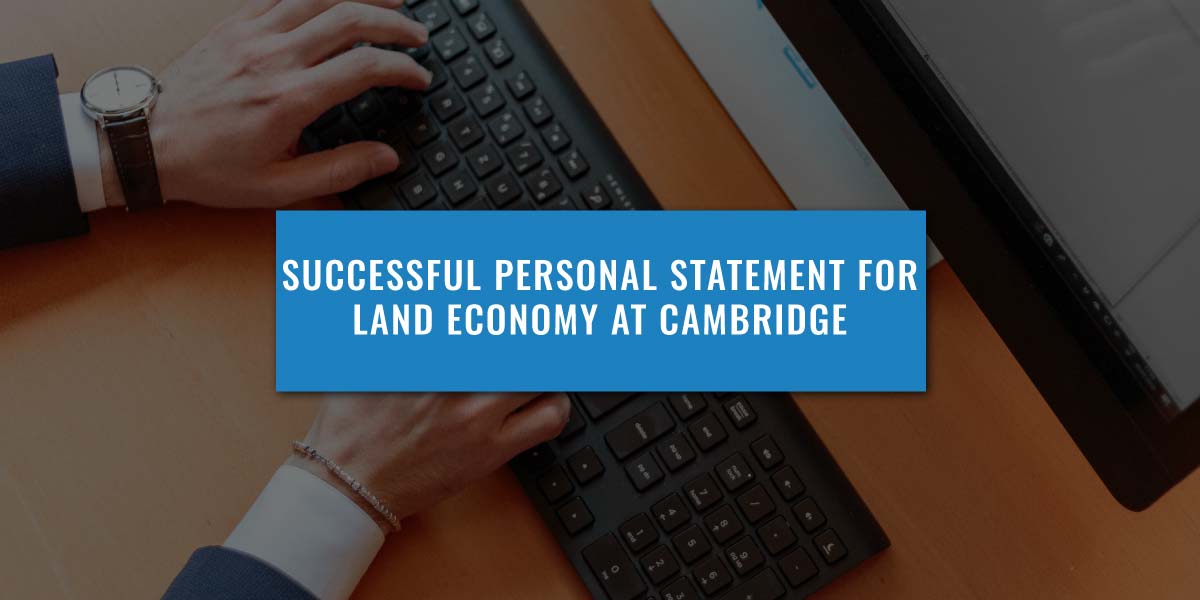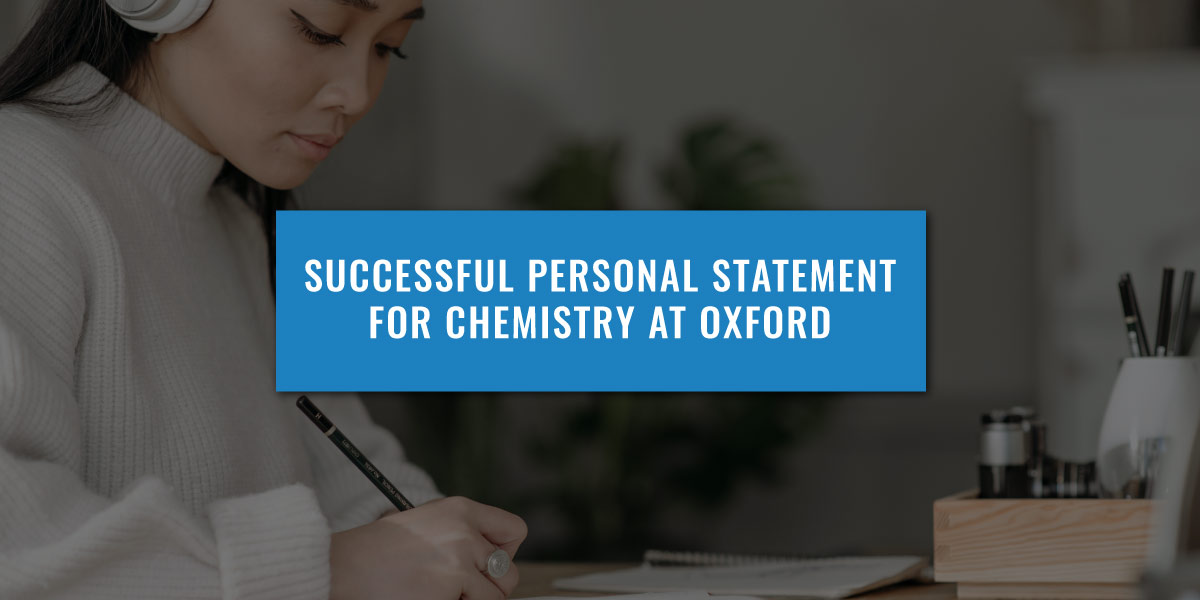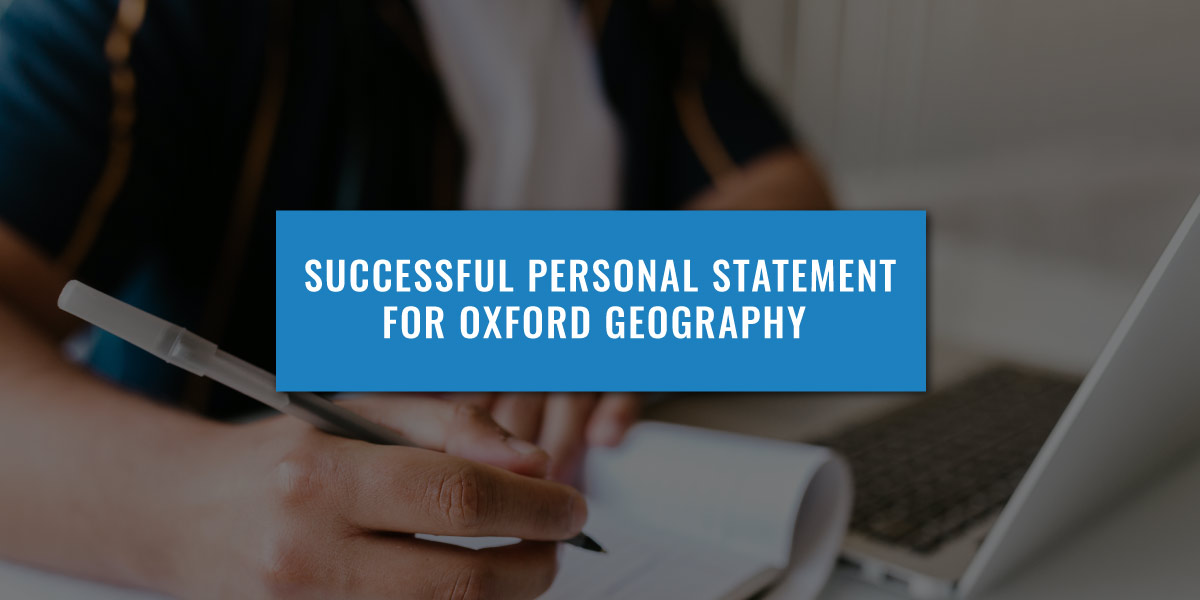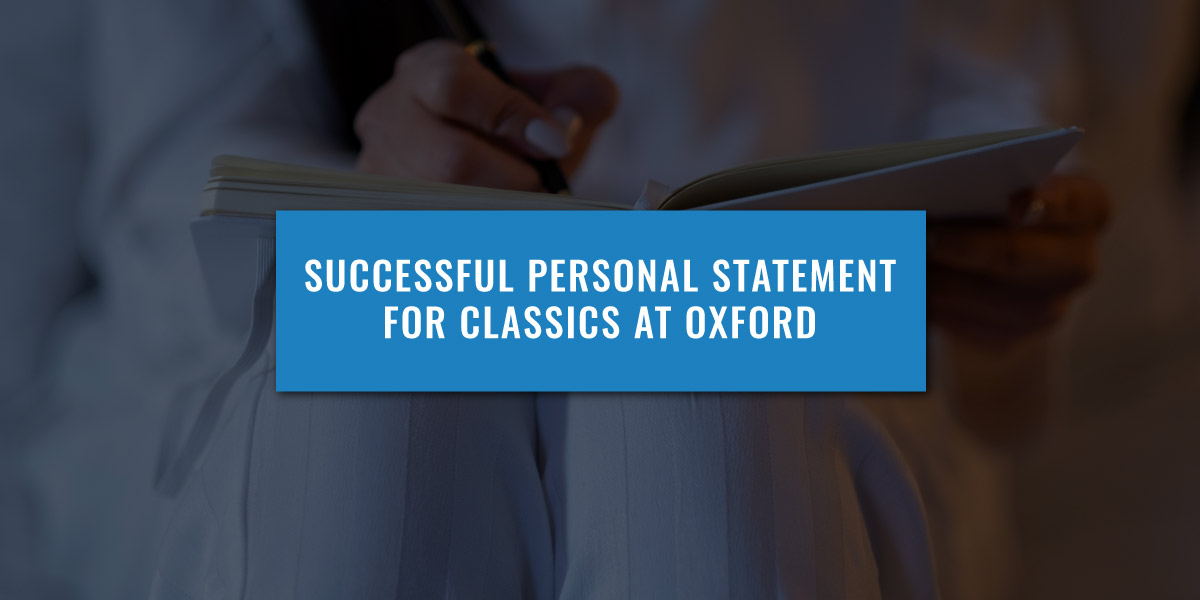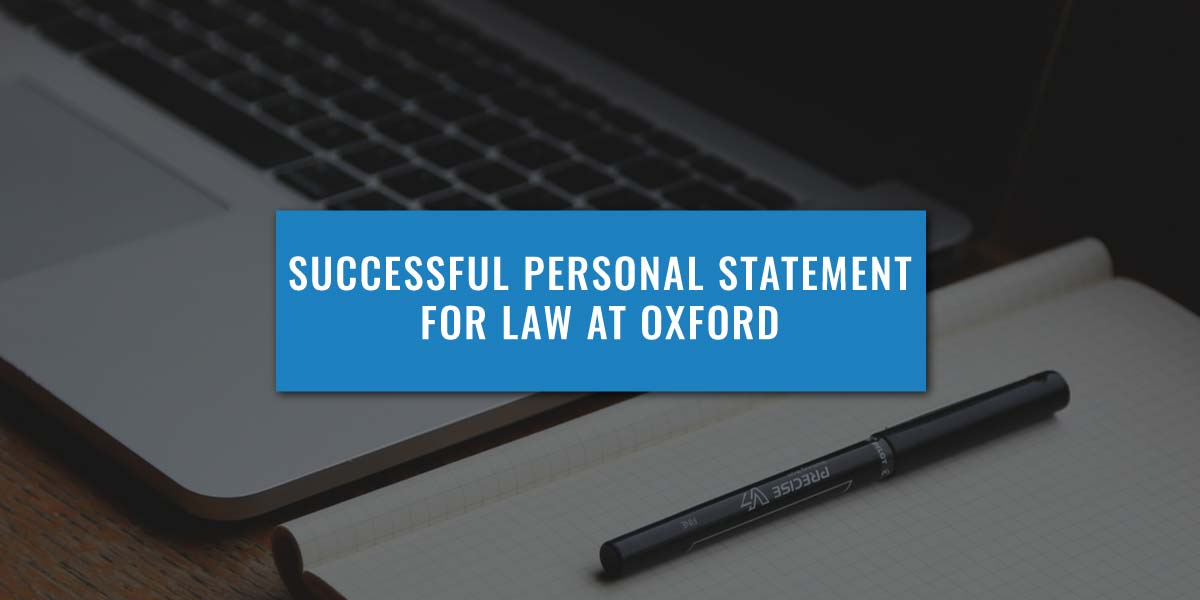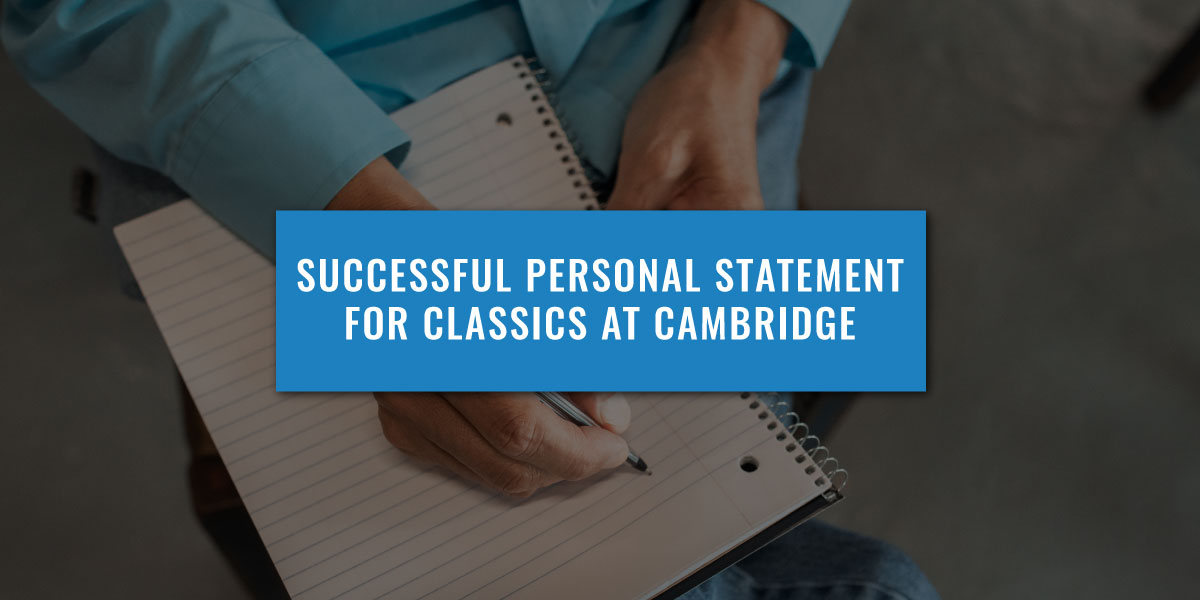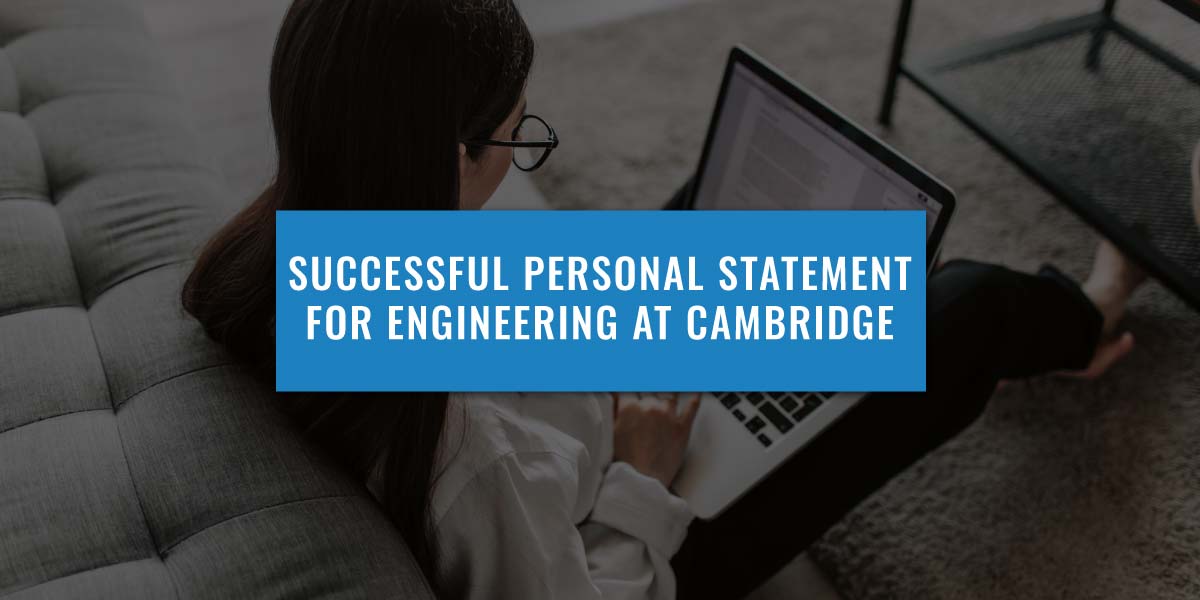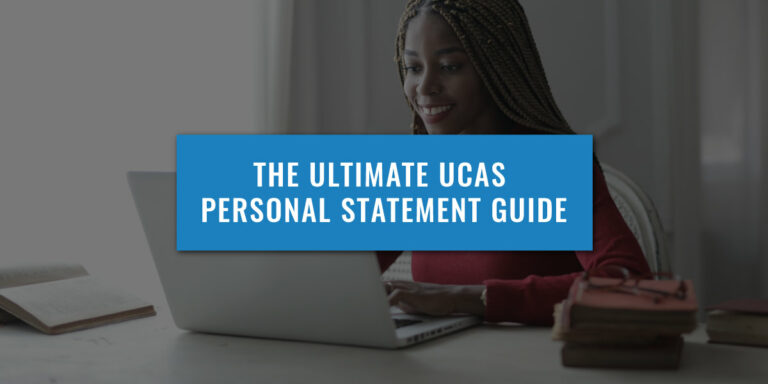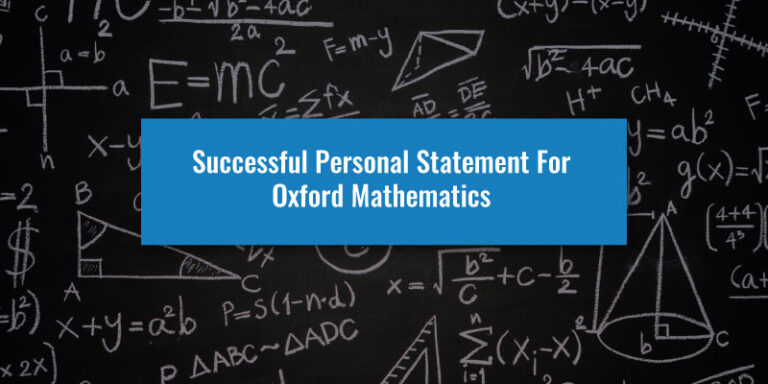Welcome to our popular Personal Statement series where we present a successful Personal Statement, and our Oxbridge Tutors provide their feedback on it.
Today, we are looking through a Computer Science applicant’s Personal Statement that helped secure a place at Oxford University. The Computer Science Course at Oxford is about understanding computer systems and networks at a deep level. Read on to see how this excellent Personal Statment gives attention to the mathematical side of Computer Science and showcases their achievements.
Here’s a breakdown of the Personal Statement (the applicant came very close to the 4,000 character limit):
CHARACTERS
3,990
WORDS
649
SUCCESSFUL?
5/5
The universities this candidate applied to were the following:
OXFORD
OFFER
IMPERIAL
OFFER
BRISTOL
OFFER
BATH
OFFER
LOUGHBOROUGH
OFFER
Enrolling on our Oxbridge Computer Science comprehensive Programme will give you access to Personal Statement redrafts.
With our Oxbridge Computer Science Premium Programme, your tutor will give you regular actionable feedback with insider tips on how to improve and make your Personal Statement Oxbridge quality for the best chances of success.
Discover our Premium Programmes today to learn how you can enrol and triple your chances of success.
With our Oxbridge Computer Science Premium Programme, your tutor will give you regular actionable feedback with insider tips on how to improve and make your Personal Statement Oxbridge quality for the best chances of success.
Speak with an Admissions Consultant today to learn how you can enrol and triple your chances of success.
Computer Science Personal Statement
My first experiences with mathematics throughout school were always enjoyable but not inspiring. While I loved working with maths, and enjoyed representing our school in both the UKMT and Hans Woyda team competitions, I felt that maths could not be the end-in-itself the school syllabus presented it as. As I progressed through secondary education, however, I began to really see it as the powerful tool to understand and structure reality that it is.
The first time I saw that my interpretation of the use of maths had some substance was during a work experience placement I organised at IMSO (International Mobile Satellite Organization). There I encountered some examples of the mathematical and computing problems involved in working with satellites: from the difference between the Euclidean geometry on a map and the Elliptical geometry on a globe, to the logistics of moving satellites around to meet demand while keeping them in orbit. These were problems that demanded much more than mere number crunching, and being exposed to this gave me a taste of what maths beyond school might involve. A second work experience spell at Siemens provided me a much more in-depth view of the important role that communication systems play in keeping a company running efficiently and effectively.
My passion for mathematics and computing was further extended while reading ‘The Magical Maze’ by Ian Stewart. The description of maths as the exploration of a maze of our own creation had an incredibly profound effect on my understanding of what research in mathematics involves. What interested me especially was the visual part of resolving problems, so that they did not rely completely on resolving long calculations. This was close to how I like to understand and explain my ideas in mathematics.
Douglas Hofstadter’s ‘Gödel, Escher, Bach’ gave me a much deeper understanding of the axiomatic systems that make up maths and how parallels can be drawn between different subjects to gain a further understanding of them all. Connected by the theme of Gödel’s Incompleteness Theorem, the author passes through seemingly unrelated topics, such as the problem of consciousness and the mathematics of Zen principles, to explain the theorem. Although not the focus of the book, I have also enjoyed reading the links that are presented between maths and computing; it seems to me that maths is not just related to computing – computing is the physical manifestation of mathematics.
Maths and computing are about describing mental processes in a precise, logical way. The rigour required for mathematical proof leaves little room for subjectivity: something can be proven, disproven or unproven, but this depends completely on the validity of your logic. The idea of being able to extract order from apparent chaos, working through concepts until they click is what I love about these subjects, and what has attracted me to take those as an integral part of my further education.
However passionate I am about my academic studies, I also enjoy being involved in extracurricular activities. As head of mentoring and a prefect, I have improved my organizational abilities working with staff and mentors in developing study programmes for those students requiring extra help. Completing the Duke of Edinburgh bronze award – now working on the silver award – has allowed me to practice and develop my leadership and teamwork skills.
In my spare time I enjoy playing tennis, skiing and swimming; the latter I practice at competition level. I also love travelling, as having spent my childhood in Denmark, Egypt, United Kingdom and Spain has given me a hunger for mixing with different cultures. I like to unwind by playing the piano – I find that the pleasure one derives from making a piece your own is one that few activities can match.
I am thrilled about the prospect of further study in these subjects with some of the leading professors in the fields, and look forward to participating in university life.
For more inspiration, take a look through our other successful Personal Statement analysis articles:
Download our Free Personal Statement Starter Guide
Good Points Of The Personal Statement
This is a well-written, structured statement. The student explains their reasons to pursue a dual-honours degree and gives equal attention to both disciplines to which they are applying. The student adds personality to the statement by thoroughly explaining their own views on all of the examples of literature read around maths and computing.
Bad Points Of The Personal Statement
There are quite a lot of short paragraphs. The student could have saved space by consolidating some paragraphs into one, hence shortening the statement. The student starts three paragraphs with ‘My’ or ‘In my’. This is quite repetitive. There are too many paragraphs, seven in total. Paragraphs five and six could be shortened and grouped into one paragraph. In the third paragraph, it appears as though the student has either forgotten to add an addition space (in order to start a new paragraph) or has incorrectly started a new line for the sentence ‘Douglas Hofstadter’s…’.
UniAdmissions Overall Score:
★ ★ ★ ★ ☆
This is a very good statement. The student has clearly achieved a lot and writes in a clear and easy-to-understand way. Attention is given to both maths and computer sciences, which is essential as the student is applying for a dual honours course. With some restructuring, this could be an excellent statement.
This Personal Statement for Computer Science is a great example of how to tackle applying to two different degrees or dual honours. The candidate’s interest and achievements are clearly shown which is vital to Admissions Tutors.
Remember, at Oxford, these Admissions Tutors are often the people who will be teaching you for the next few years, so you need to appeal directly to them.
You can find more successful personal statements and our expert guides on our Free Personal Statement Resources page.
Our expert tutors are on hand to help you craft the perfect Personal Statement for your Oxford Computer Science application.
With our Oxbridge Computer Science Premium Programme, we help you craft the perfect Personal Statement, score highly on the MAT and teach you how to Interview effectively.
Discover our Oxbridge Computer Science Premium Programme by clicking the button below to enrol and triple your chances of success.
With our Oxbridge Computer Science Premium Programme, we help you craft the perfect Personal Statement, score highly on the MAT and teach you how to Interview effectively.
Discover our Oxbridge Computer Science Premium Programme by starting a Live Chat and speaking with an expert Admissions Consultant.

